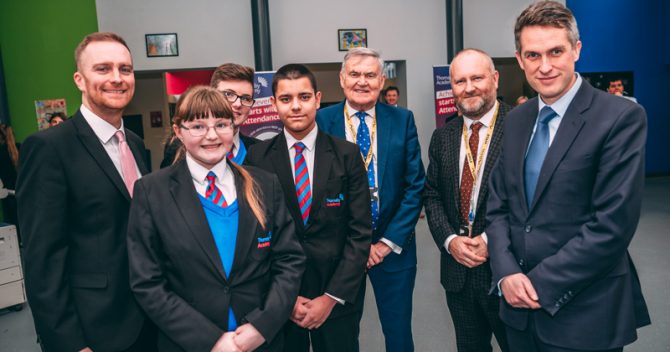The ‘bad bank’ academy trust set up by government to turn around orphan schools has been hit by cashflow problems as Covid scuppered its expansion plans.
Newly-published accounts for the trust also reveal it has paid Delta Academies Trust £171,000 for secondments, including that of Gareth Mason as chief executive, who left the role last year. Another £93,000 was paid to the trust for school improvement support.
Further details have also emerged about how Falcon, set up by the government to take over schools no-one else wants, will operate. It will oversee schools until they are “viable” before handing them to new academy trusts for a more permanent home.
Covid causes ‘cashflow problems and budget deficit’
But Falcon’s 2019-20 accounts blame Covid for causing a “delay to schools joining the company leading to cashflow problems and budget deficit”. The original plan before the pandemic was for three schools to join by August last year.
More measured growth… will impact levels of funding and lengthen the time before the company achieve capacity
However, the first school – Thornaby Academy – joined in September last year, with a second school – Royds Academy – only joining this month.
Accounts state Falcon was also carrying out due diligence for another school to join by Easter, however that deadline has been missed.
The trust is now looking at “more measured growth” this year which will “impact levels of funding and will lengthen the time before the company achieve capacity.
“The company is working very closely with the DfE to proactively manage the impact of the revised onboarding timetable and this includes continued robust financial management,” accounts add.
National schools commissioner Dominic Herrington told MPs this week that 76 schools were still waiting to convert, down on the 200 two years ago.

When asked about the effectiveness of Falcon, Herrington said it provides “one extra tool in the locker” for commissioners.
But Falcon said it is also “unable to procure school improvement individuals to meet the needs identified in the school action plans” because of Covid restrictions on staff working across schools.
As well as recruiting specialist staff, Falcon – chaired by Outwood Grange trust chair David Earnshaw – is also working with “local large MATs to second additional staff”.
A Falcon spokesperson said Covid has “meant that original timescales have been reviewed but we have managed our finances well through this period”.
£170k for CEO and £674k from DfE
Falcon got a £674,000 start-up grant from the Department for Education to fund its central team salaries, overheads, legal and professional fees and setting up financial and management information systems.
Mason was seconded as Falcon’s chief executive from Delta, where he is assistant director of education. Mason’s secondment ended last year.
Financial records show Delta was paid £171,000 in secondment costs, with another £93,000 paid to the trust for school improvement support and £7,000 in office costs.
Falcon also won a trust capacity fund grant which was used to provide school improvement support at Thornaby. Accounts state ‘other’ DfE grants totalled £243,000.
“It is expected that following the start up funding, Falcon will achieve the capacity to be self-sufficient,” accounts add.
Falcon told Schools Week it has operated “partly by seconding external experts to turn around” it schools. The spokesperson added the total secondment costs for the year for four staff came to £264,000.
The spokesperson would not confirm if the £171,000 fee was solely for Mason’s secondment, which ran for a year from September 2019.
Accounts state the trust’s “main objective” was to recruit three schools by August last year, a target it has missed. After securing the third school, Falcon wants to start due diligence on “at least two further schools” to join by September.
Falcon said it would be “not be appropriate to discuss other schools which we may be working with in the future to improve”.
Schools will be supported then handed to new MATs
The accounts also reveal how the trust will take pass on the schools to other trusts after “long-term sustainability and viability” is secured. This will free up capacity for Falcon to take on more schools.
While the trust has the school, it will provide “immediate, sustainable improvement” to tackle “long-term problems with targeted, effective, practical plans and solutions that would make them attractive for an established MAT to take them on”.
This would “significantly reduce” the risk to another MAT of taking the school meaning a “wider range of trusts could consider taking on a previously under-performing school… strengthening the network of MATs within a region.”



Your thoughts